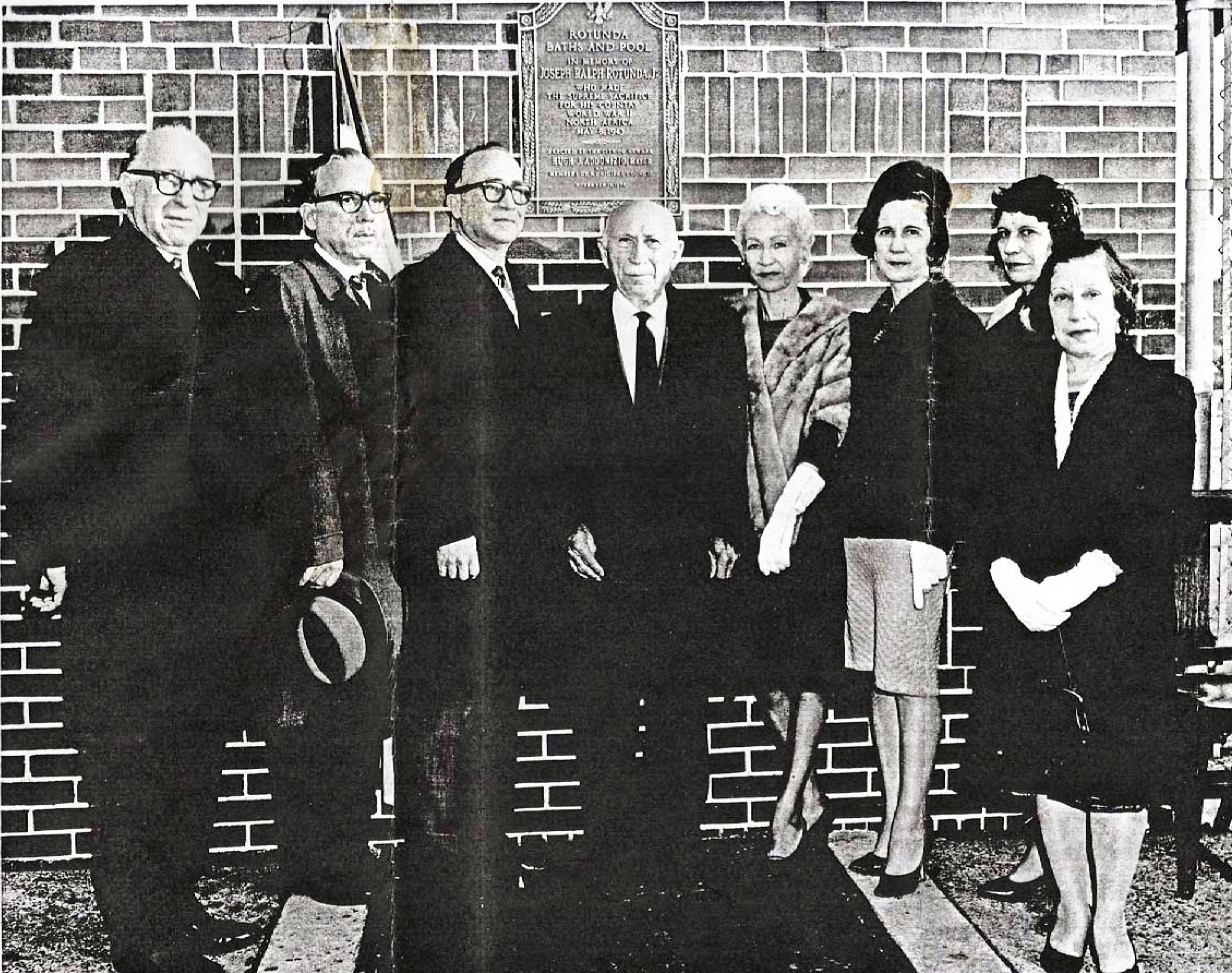“When WWII broke out, the Italians fought for America”
All families have their tales of relatives, living or dead that are passed through the generations as a way of creating a shared identity. The story of the Rotunda Pool in Newark serves not only as a connection to history, but as an important reminder to take pride in both our Italian and American heritages.
Joseph Ralph Rotunda was the first soldier from Newark’s Italian American community to die in World War II. He subsequently had a city pool named for him as a testament to the Italians who proved their loyalty by fighting and dying in the war.
A 1966 plaque that states: “In Memory of Joseph Ralph Rotunda, Jr. who made the supreme sacrifice for his country, World War II, North Africa, May 8, 1943,” still stands. Today the neighborhood is ethnically diverse; however, there are still signs of its past life as an Italian enclave. St. Lucy’s Church, built in 1892 on Seventh Avenue, continues to offer a Mass in Italian but there are far few vestiges left that existed and thrived there a generation ago.
At the outset of World War II, Italian Americans found themselves in a position in which their native land was at war with their adopted home. By and large, they sided with the United States with soldiers of Italian heritage making up a significant percentage of the armed forces. All four sons in the Rotunda family served in the military.
For Newark’s Italian Americans, the sacrifice of a soldier who was part of their community provided a kind of visceral evidence that they were unquestionably American. Joseph Ralph Rotunda, Jr. was killed by a land mine while serving with the Cannon Company, 168th Infantry in Tunisia as part of the first invasion forces. He had only been overseas for three months when he was killed in action on May 8, 1943.
The pages of the Italian Tribune regularly emphasized both the ideological commitment and tangible contribution of Newark’s Italian American community to the war effort. Most poignantly, this was expressed in stories of its young men on the front lines. The actions of the Fascist government had created an uneasy relationship between the Italian heritage and American identity; yet the Tribune was able to turn this around by highlighting the unique contribution of Italian American soldiers. In a regular feature, “Our Boys in the Service,” this newspaper often printed stories that spoke of the connection between Newark’s Italian American soldiers and the Italian people.
In the months following his death, Pvt. Rotunda became an even more visible symbol of Italian American sacrifice. On October 17, 1943, he was honored at a memorial service in Newark’s First Ward which included a parade in his honor that began at Barringer High School, his alma mater. The Italian Tribune’s coverage highlighted the raising of a service flag as the main attraction and indicated that the day’s events would include “a special tribute in memory of Pvt. Joseph R. Rotunda Jr., who sacrificed his life in defense of his country.”
In early November 1943, the City Commission passed a resolution to rename the “Clifton Avenue Pool” the “Rotunda Pool.” This public and permanent memorial would serve to not only honor the patriotism of Italian Americans in the war, but it would also acknowledge the status and impact of the Italian American community in Newark. This pool was centrally located within the First Ward and the resolution was put forth by Ralph A. Villani, Parks and Public Property Director for Newark who later became the first Italian American Mayor of Newark in 1949.
Seventeen years after the renaming of the pool, the aforementioned plaque was dedicated. By that time, the First Ward had already begun to change significantly. The success of the children and grandchildren of the original Italian immigrants meant better education, better jobs and greater mobility. Many Italian American families moved out of the First Ward to one of the many suburban communities that had developed around Newark. The construction of Route 280 in the 1960s further destroyed and divided traditional neighborhoods.
The Rotunda Pool stands in the same location at 75 Clifton Avenue. There have been calls in past years to rename the pool after someone more reflective of the current population, but objections from Newark’s Italian American community have thus far prevented a name change. Now, 75 years following the naming of the pool for the young soldier who gave his life in the name of freedom, there are likely few who pass by or frequent the pool who know its history. Thankfully, there are still those who remember and still care to remember the significance of the Italian Americans of the First Ward and how they worked to make America great.





